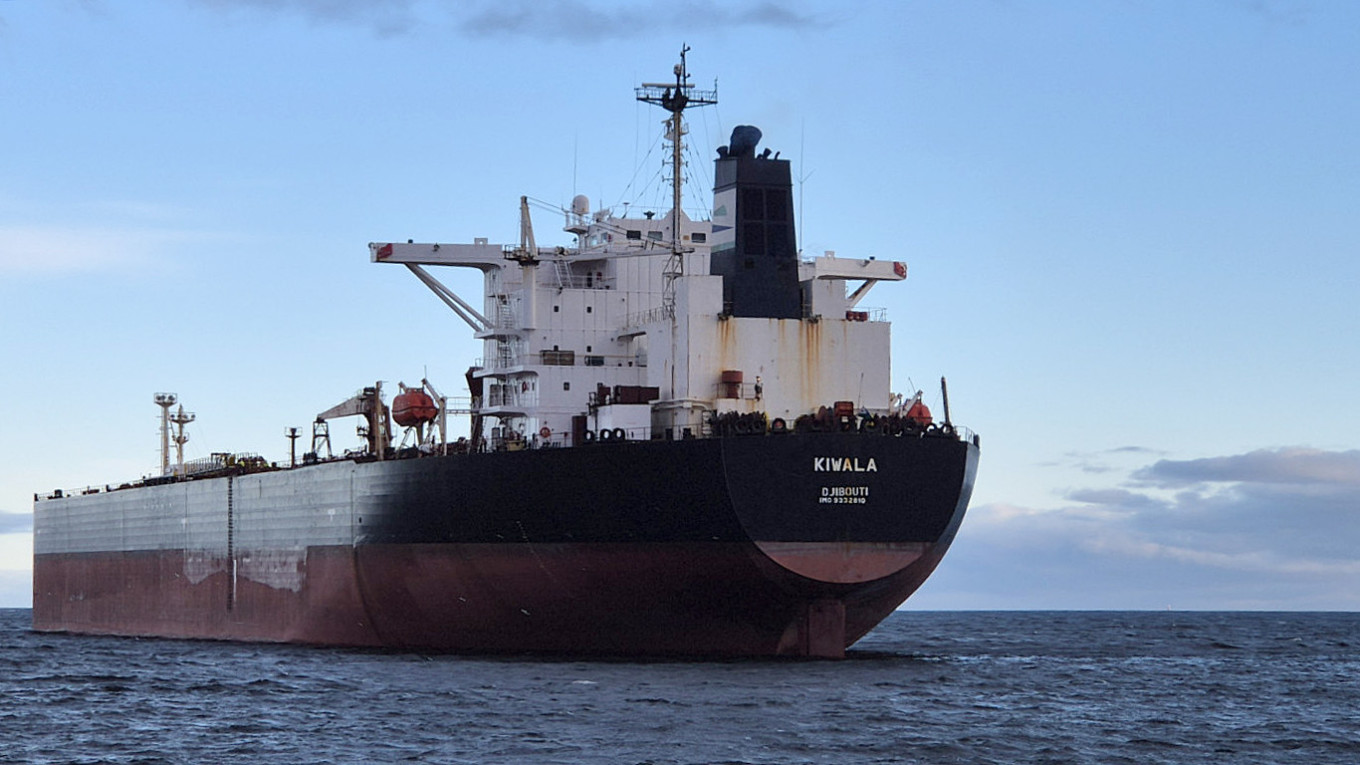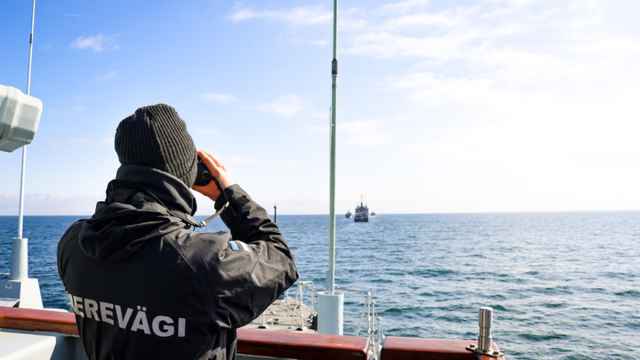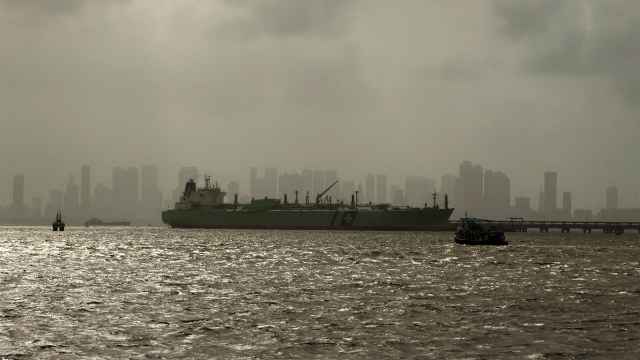Estonian authorities said Saturday that they will not allow an oil tanker believed to belong to Russia's "shadow fleet" to pursue its journey until it has resolved various legal and safety issues.
The Kiwala tanker was detained Friday in the Gulf of Finland in order to check its papers, which revealed that the boat is stateless. Two days earlier, the Estonian parliament passed legislation granting the country’s Defense Forces the authority to use force against vessels in the Baltic Sea if they are found to pose a threat to national security.
Kristjan Truu, director of the Maritime Department of the Transport Administration, said 40 problems have been detected with the boat, 23 of them having to do with documentation and the rest involving its seaworthiness.
"We cannot allow the ship to continue its voyage because maritime and environmental safety cannot be guaranteed," he said.
Documents produced during the initial inspection indicated the Kiwala was sailing under the Djibouti flag, but the East African country quickly responded by saying it had de-registered the tanker.
The vessel is currently anchored in Muuga Bay and remains under surveillance by the Estonian Navy.
The Kiwala is under sanctions from Canada, the European Union, Switzerland and the United Kingdom and was on its way to the Russian port of Ust-Luga, Estonian officials said.
Security analysts say Russia is operating a "shadow fleet" of hundreds of vessels, seeking to dodge sanctions imposed on its oil exports over the war in Ukraine.
Estonian border guard head Veiko Kommusaar said the boat's captain was Chinese, with most of the 24-member crew from either China or Mauritania. The Ukrainian sanctions-monitoring portal War & Sanctions noted that the Kiwala was previously commanded by a man named Sergei Kharchenko.
The vessel is owned by Tirad Shipping, a Mauritius-registered company whose fleet consists solely of the Kiwala. The tanker previously belonged to Turkish and Indian shipping firms.
A Message from The Moscow Times:
Dear readers,
We are facing unprecedented challenges. Russia's Prosecutor General's Office has designated The Moscow Times as an "undesirable" organization, criminalizing our work and putting our staff at risk of prosecution. This follows our earlier unjust labeling as a "foreign agent."
These actions are direct attempts to silence independent journalism in Russia. The authorities claim our work "discredits the decisions of the Russian leadership." We see things differently: we strive to provide accurate, unbiased reporting on Russia.
We, the journalists of The Moscow Times, refuse to be silenced. But to continue our work, we need your help.
Your support, no matter how small, makes a world of difference. If you can, please support us monthly starting from just $2. It's quick to set up, and every contribution makes a significant impact.
By supporting The Moscow Times, you're defending open, independent journalism in the face of repression. Thank you for standing with us.
Remind me later.





